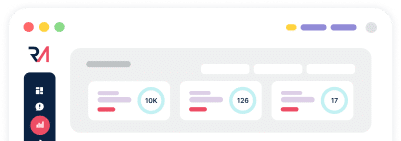On August 15, 2025, the Illinois General Assembly passed House Bill 2516, a landmark piece of legislation banning the use of intentionally added per- and polyfluoroalkyl substances (PFAS) in a wide range of consumer products. Often called “forever chemicals,” PFAS are linked to serious health risks and environmental persistence.
The law, spearheaded by State Senator Julie Morrison, takes immediate effect and establishes a compliance deadline of January 1, 2032 for manufacturers to eliminate PFAS from targeted product categories. In addition, the Illinois Environmental Protection Agency (IEPA) is required to submit a report on PFAS-related risks and regulatory options by August 1, 2027.
What the Regulation Covers
The ban applies to consumer products sold or distributed in Illinois that frequently result in direct or prolonged exposure. By January 1, 2032, manufacturers must ensure the elimination of intentionally added PFAS from:
- Cosmetics and cosmetic packaging
- Dental floss
- Children’s products
- Food packaging
- Menstrual products and intimate apparel
PFAS are synthetic chemicals valued for their oil- and water-resistant properties. However, their persistence in the environment and the human body has raised significant health concerns, including cancer, hormone disruption, immune damage, and developmental issues in children.
The nearly decade-long phaseout period provides manufacturers time to transition toward safer alternatives while minimizing disruption.
Feedback Deadline
There is no formal feedback deadline associated with this regulation. However, manufacturers must prepare for compliance by January 1, 2032.
Why It Matters
This legislation reflects Illinois’ proactive stance on public health protection by targeting products with high exposure risk, especially for vulnerable populations. It signals a broader regulatory trend that may influence other states or federal authorities to take similar action. The law also encourages industry innovation, as companies will need to invest in research and development to identify PFAS-free alternatives.
Who Should Take Note
This update is particularly relevant for manufacturers, regulatory affairs teams, quality assurance professionals, and R&D units in industries such as cosmetics, food packaging, personal care, and children’s products. Suppliers and distributors operating in Illinois must also ensure compliance.
Next Steps
Companies should begin by auditing product lines to identify PFAS usage. Developing transition plans and collaborating with suppliers on safe material alternatives will be critical. Businesses should also closely monitor the IEPA’s 2027 report, which may shape further PFAS-related regulations and broader oversight.
To manage compliance efficiently, companies will need reliable tools to track evolving regulations and streamline documentation.
RegASK is an AI-driven solution for Regulatory Intelligence and Workflow Orchestration helping life sciences and consumer packaged goods companies keep pace with changing global regulations and guidelines. It combines smart documentation, automated workflows, and integrated experts to enable faster adaptation, which ultimately reduces operational risk. Learn more or book a demo now.
FAQs
What is Illinois House Bill 2516?
House Bill 2516 bans intentionally added PFAS in certain consumer products sold or distributed in Illinois, with a compliance deadline of January 1, 2032.
Which products are affected by the Illinois PFAS ban?
The ban applies to cosmetics and their packaging, dental floss, children’s products, food packaging, menstrual products, and intimate apparel.
What deadlines are associated with the new regulation?
Manufacturers must comply by January 1, 2032. Additionally, the Illinois Environmental Protection Agency must submit a PFAS risk report by August 1, 2027.
How can companies manage compliance with evolving PFAS regulations?
Companies can leverage tools like RegASK to monitor regulatory changes, automate compliance workflows, and coordinate with experts to ensure timely and cost-effective adaptation.
Subscribe to the latest regulatory news
Curated newsletters
Relevant industry info
Access expert insights

